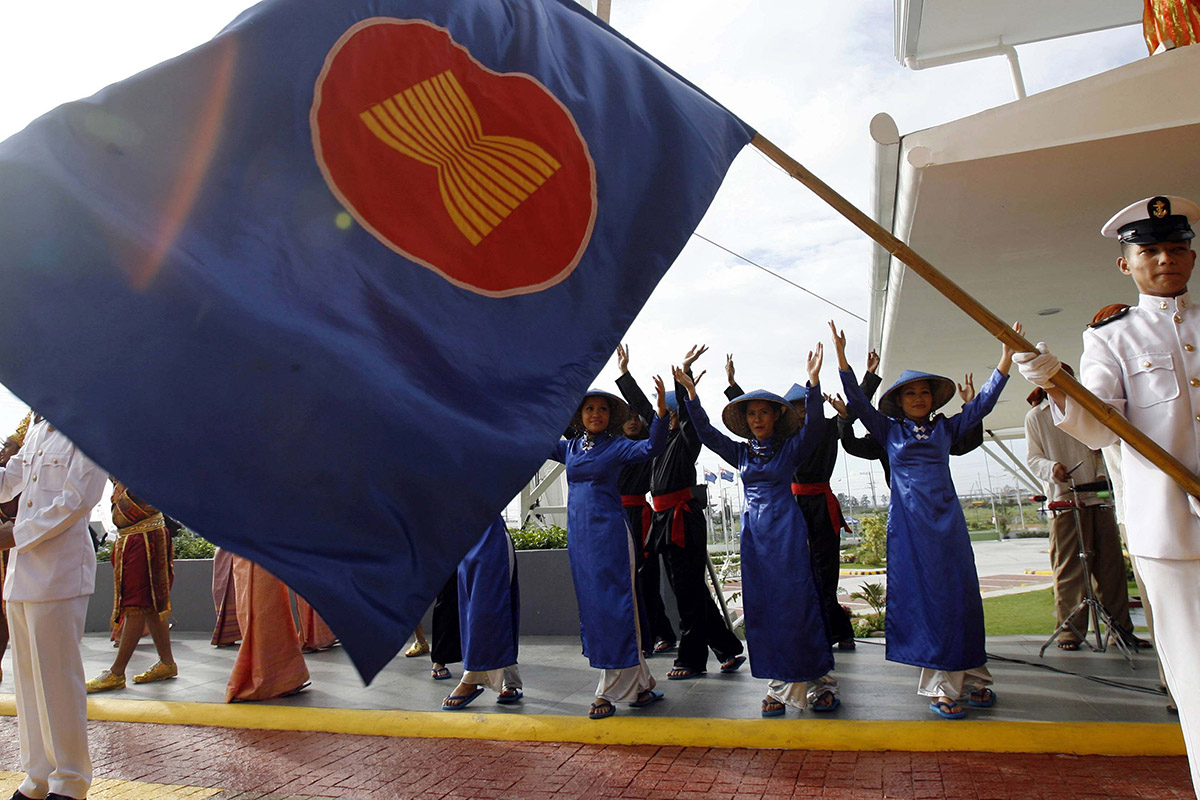I am delighted that my first meeting with the leaders of the Association of Southeast Asian Nations (ASEAN) comes at a historic moment: the 50th anniversary of ASEAN’s founding. During those 50 years, not only my country, the Republic of Korea, but almost all of Asia has been utterly transformed. ASEAN’s role in harnessing and spreading economic dynamism has been essential to the region’s success.
For Korea, ASEAN has undoubtedly been a special and valued friend. Last year alone, some six million Koreans visited ASEAN member states, both as tourists and for business. Approximately 500,000 citizens of ASEAN member states now live and work in Korea, while roughly 300,000 Koreans live and work in ASEAN countries.
This is one example of why Korea’s ties with ASEAN are more than just intergovernmental relations. Our relationship is deepened in the most personal way possible, through the intertwining of so many individuals’ lives.
This fact should not surprise anyone. ASEAN 2025: Forging Ahead Together, which was endorsed by ASEAN leaders at their 27th Summit in November 2015, states that the group strives to be a “people-centred, people-oriented community” that seeks to build a caring and sharing society which is inclusive and where the well-being, livelihood, and welfare of the people are enhanced.
“People first” has been my long-standing political philosophy as well, and it is a vision in line with the spirit of Korea’s “candlelight revolution” that lit and heated up the winter in Korea a year ago. Korea and ASEAN share a common philosophy that values people, and that shared outlook will set the path that Korea and ASEAN take together in the years and decades ahead.
Since 2010, Korea and ASEAN have made significant strides together as strategic partners. Korea-ASEAN cooperation so far, however, has remained focused mainly on government-led collaboration in political, security, and economic affairs. I intend to help advance Korea-ASEAN relations while placing a high priority on the “people” – both Koreans and the people of ASEAN. My vision is to create, in cooperation with ASEAN, a “peace-loving, people-centred community where all members are better off together.” This can be summed up in “three Ps”: People, Prosperity, and Peace.
To realise this vision, I will pursue “people-centred diplomacy.” So, from this point onward, cooperation between Korea and ASEAN will be developed in a way that respects public opinion among all of the peoples of our association, gains their support, and invites their hands-on participation.
To this end, and in commemoration of ASEAN’s 50th anniversary, we have designated this year as “Korea-ASEAN Cultural Exchange Year,” and actively promoted various cultural and people-to-people exchanges. Last September, the ASEAN Culture House (ACH) opened in Korea’s southern port city of Busan. The ACH is the first of its kind to be opened in an ASEAN dialogue partner country, and it is expected to serve as a hub for cultural and people-to-people exchanges between Korea and ASEAN members. The Korean government will spare no effort to expand these exchanges, especially among the young people who will lead Korea-ASEAN relations in the future.
We should also work to build a community of peace where people are safe. In Asia, we all are facing the threat posed by North Korea’s nuclear weapons and missiles, as well as non-traditional security threats, including terrorism, violent extremism, and cyber-attacks on our businesses, our social and civic infrastructure, and our official institutions. The Korean government will strive to ensure that both Koreans and the people of ASEAN are able to lead happy and safe lives, which means cooperating with all ASEAN member states, at both the bilateral and multilateral level, to overcome the security challenges that we jointly face.
Finally, I will endeavour to promote greater mutual prosperity, which benefits citizens of both ASEAN and Korea. To ensure the sustainability of people-centred cooperation, all countries in the region must grow and develop together. Creating a structure for mutual prosperity requires lowering regional and transnational barriers to facilitate the flow of goods and promote people-to-people interactions. In short, ASEAN’s dynamism must now be tied to its inclusiveness.
That is why Korea will actively support the “Master Plan on ASEAN Connectivity 2025” and “Initiative for ASEAN Integration (IAI) Work Plan,” both of which call for enhancing the connectivity between ASEAN economies and citizens. We will also accelerate the pace of negotiations for the further liberalisation of a Korea-ASEAN Free Trade Agreement (FTA), in order to pave the way for freer and more inclusive growth in the region.
Korea is now preparing for yet another “hot” winter: the PyeongChang Olympic and Paralympic Winter Games, to be held in February 2018. Our preparations are focused on ensuring that these Games deliver a message of reconciliation, peace, mutual understanding, and cooperation throughout the world.
I happily invite you all to discover a peaceful and joyous winter in PyeongChang, and experience the dynamism sweeping through Korea and ASEAN. Don’t miss an opportunity to find out and enjoy what Korea and ASEAN share in common.
Moon Jae-in is President of the Republic of Korea.
Recommended stories:
